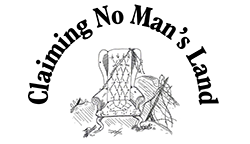We Should All Be Wrong More Often

People seem more willing to change their minds about color palettes for their living room than they are willing to change their political opinions. One of those things is a simple matter of taste, the other requires background knowledge in economics, philosophy, sociology, geography, history, and law. Given how difficult those topics can be, it is amazing that there is a stigma and humiliation associated with being wrong about politics.
It seems fair to say that part of that stigma is because of the natural sting from being wrong. Being wrong just is not fun. But people get way too much satisfaction from reveling in their political opponents’ mistakes. The fear of ridicule seems to be amplifying how much people do not like to be wrong about politics.
Especially on the internet, politics has become a point-scoring game. The more you can make your opponent look like a blundering idiot, the more points you get. The instinct seems to be that we will win so many points that our political opponents will eventually be forced to tap out. Then everybody will see how right we are. Then the world will be better off.
Instead, what I usually watch happen is people in their natural pride and stubbornness, galvanized by the fear of unrelenting scorn for being wrong, refuse to ever even entertain the notion that they’re wrong. People say anything and everything to avoid being wrong. Public discourse suffers as a result. I have seen it in others and, to be honest, I have seen it in myself.
The opinions we hold are supposed to make the country better, otherwise we would not hold those opinions. But our refusal to question them or “win with grace” when we are vindicated is moving us away from the progress we want in the first place.
We need a huge shift in what it means to “win” at politics. Instead of winning by “totes owning” our political opponents, the people who are the most willing to be wrong for the sake of the country are the ones who should “win.”
Imagine if the debates over the effectiveness of any given policy were no longer about pride and pet projects but about what is actually beneficial and advantageous? Imagine if we respected the people who admitted they were wrong instead of blasting them, their ancestors, and their dog?
This would require people humbly admitting when all reasonable indicators suggest they’re wrong. It would also require calm, unhindered avenues of communication between political opponents in everyday life and in government.
That sort of thing sounds like a pipe dream in the current political climate, but it starts with the people reading this post deciding that they are willing to be wrong and giving up the endless game of “gotcha!”s that are contributing to a toxic, counterproductive political atmosphere.
Political issues are wildly complex. Of course there are times for unflinching devotion to moral principles. But (usually) when it comes to talking about policy, anybody who says things are so obvious that any thinking person has to agree likely just does not understand the strength of the reasons that people disagree. In the face of hard questions, it’s okay to be open to being wrong.
If you enjoyed this post, please consider sharing and subscribing!
Have a question or an idea for an article?
If there’s a subject you’ve been curious about and you want to see an article about it, just click the button below and shoot me a message!

K. William Huitt
K. William Huitt is currently an M.A. student in Western Michigan University’s philosophy program. He graduated from Hillsdale College in 2019 with a B.A. in philosophy and a minor in history. He has spoken at various Christian apologetics events and writes regularly about religious and political issues.
